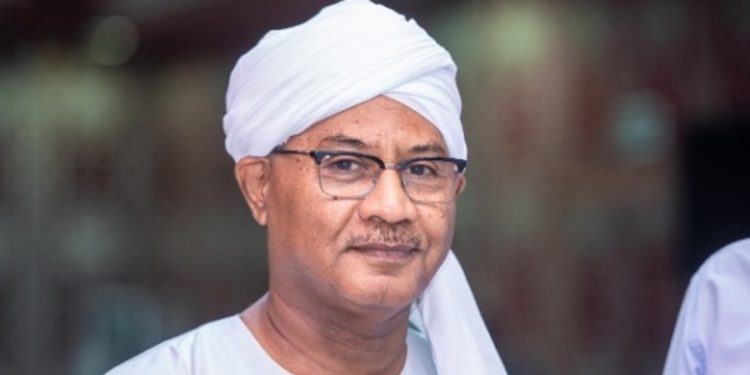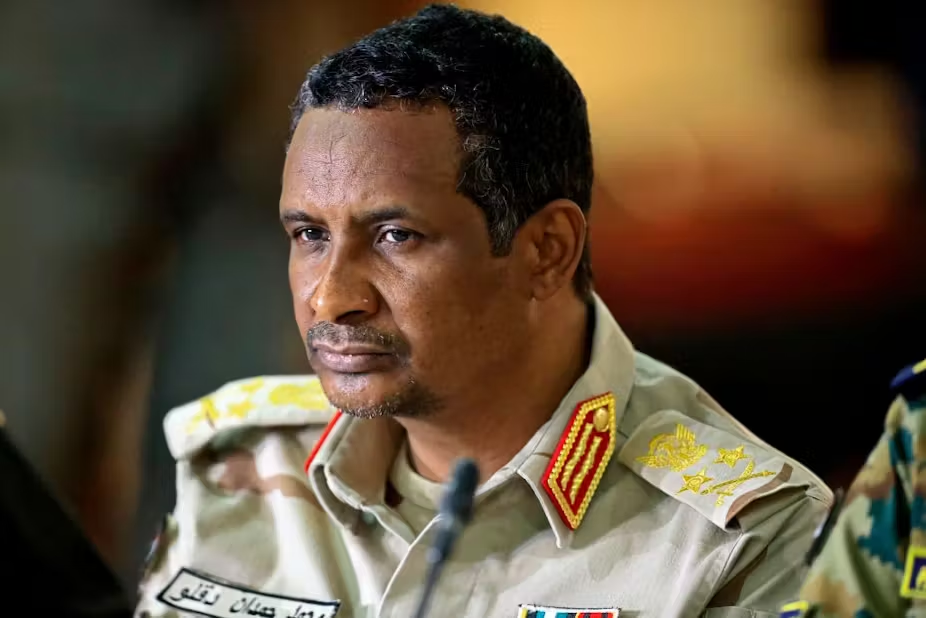By SUDAN TRIBUNE
March 1, 2024 (NAIROBI) – A prominent leader of the Coordination of Civilian Democratic Forces (Tagadum) has emphasized the need for real civilian participation in negotiations between Sudan’s warring parties, the military and the Rapid Support Forces. He also expressed optimism about possibly forging a united front with the Democratic Bloc to shape the country’s future.
Al-Wathiq El-Berair, Secretary-General of the National Umma Party, spoke to “Sudan Tribune” about Tagadum’s ongoing efforts to bridge the gap between the military and the RSF. He highlighted their outreach attempts to both sides to achieve a ceasefire, restore democratic transition, and rebuild war-torn areas.
Tagadum’s efforts follow their January meeting with RSF Commander Mohamed Hamdan Dagalo (“Hemetti”) in Addis Ababa, where they signed a declaration of principles to end the conflict. They hope to replicate this success with the military leadership.
El-Berair emphasized Tagadum’s comprehensive vision for peace, prioritizing an end to hostilities, addressing the humanitarian crisis, and engaging with all democratic forces. He also stressed the importance of dialogue with rebel groups led by Abdel Wahid Nur and Abdel Aziz Al-Hilu, expressing confidence in finding common ground.
Founding conference and expanding participation
Tagadum’s founding conference has been delayed to ensure the broadest possible participation from democratic forces. El-Berair assured that even those who don’t join will be consulted on the national agenda and future political processes, excluding the banned National Congress Party and the Islamic Movement.
He emphasized Tagadum’s commitment to inclusivity, noting that many former critics of the Forces of Freedom and Change (FFC) are now part of the coalition. He refuted monopoly accusations, highlighting that the FFC is expected to have only a 30% participation rate.
Preparations for the founding conference are underway, including workshops to develop a shared vision for peace and democratic rule. Tagadum is actively engaging with various segments of Sudanese society to broaden its base.
Islamists and peace
El-Berair condemned the role of Islamists and the former National Congress Party in fueling the conflict, accusing them of prioritizing their own return to power over the nation’s well-being. He expressed concern about the military’s apparent reluctance to commit to peace agreements fully.
However, the NUP Secretary-General remains optimistic about the possibility of a peaceful resolution. He stressed the urgency of finding common ground and including civilian forces in future negotiations to achieve a lasting peace agreement.
Defending international efforts
El-Berair defended the role of Tagadum leaders who have made progress abroad. He emphasized their efforts to stop the war, support peace initiatives, and engage with international actors despite communication difficulties within Sudan.
He acknowledged the challenges of working domestically due to the war and limited communication channels. He noted a decline in political activity within Sudan and a growing international role in the conflict. This has led both warring parties to prioritize international engagement over domestic efforts.
Therefore, he explained, “civil forces had to actively prioritize the issue of war and ensure the civil voice is heard on the international stage.”
Addressing criticism
El-Berair addressed accusations of self-promotion and foreign funding directed at Tagadum’s leadership. He dismissed these claims as superficial and rooted in a lack of understanding. He emphasized that Tagadum operates with national interests in mind, as opposed to the personal agendas of those supporting the coup and the war.
Focus on national unity
The political leader reiterated Tagadum’s commitment to alleviating the suffering of the Sudanese people. He expressed their unwavering efforts to end the war and enable a dignified return for Sudanese citizens. He emphasized their call for unity and transparency in achieving this goal.
Highlighting arrests
He concluded by revealing that over 130 leaders and members of the National Umma Party have been arrested by both warring parties, including state officials, active members, and mosque imams.
(ST)







Discussion about this post